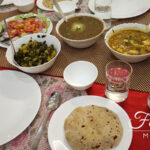Cooking with wine adds a real depth of flavour to our dishes, with many sauces, stews and desserts really benefiting from it.

Photo by Katerina Holmes via Pexels
However, today many people don’t drink alcohol and wish to avoid it for a variety of reasons, whether it be personal preference or due to addiction, with thousands of people having sought help from alcohol rehab UK wide. In the case of the latter, it’s so important to find suitable substitutes to avoid relapse and look after a person’s health.
Fortunately, there are a number of options that can be used as alternatives while not compromising on flavour these days. So, if you’re looking for a non-alcoholic alternative to cooking wine, here are five great options…
Non-Alcoholic Wine
Of course, we’ll start with non-alcoholic wine which is naturally the closest substitute as it keeps many of the flavour characteristics of its alcoholic counterpart. The process for making non-alcoholic wine is much the same as the alcoholic version but instead uses vacuum distillation or reverse osmosis to get rid of the alcohol. Therefore you still get the same complex flavours.
It’s widely available in supermarkets and wine shops these days, so you’ll also have no problem finding it.
Vegetable or Chicken Broth
Veggie or chicken broths can also be a solid and versatile offering that can give some good depth to your dishes. Broth adds moisture and flavour to a wealth of different sauces and soups, enhancing the overall flavour of a dish. In this case though, don’t be putting it in your desserts as an alternative!
You can generally use an equal amount as to what you would wine, and what’s great about this alternative is that you can customise the flavour to suit the dishes.
Vinegar
You need to be a little scarcer with vinegars, with it important to dilute with water rather than using similar glugs as you would with wine, but the wealth of different vinegars available these days can make it an excellent substitution.
Start with a small amount and adjust to taste as it can become overpowering quite quickly if you aren’t careful.
Citrus Juice
If you’re looking for something lighter and zesty, a good replacement for white wine, particularly in the likes of seafood dishes, are citrus juices. Whether it be the squeeze of a lemon or something a little more complex, the natural acidity from the juice can really help tenderise meat and seafood while also enhancing the flavour.
Herbal Infusions
Finally, herbal infusions are incredible for adding more depth and flavour to your dishes and like broths you can customise htem to your own taste and the type of dish you’re creating. Common herbs that are used in such infusions include thyme, rosemary, bay leaves, peppercorns, and garlic, each of which impart their own unique aromas and flavours.
All you need to do to make one is simmer the herbs and spices in water or a broth for several minutes. Then it’s a case of straining the liquid and using it in your dishes. You can add herbs and spices to the broth while simmering to ensure you get the right taste. It’s quick, easy and doesn’t require a drop of alcohol.




These are great alternatives to use in cooking, and thanks for the tip about diluting vinegar when using it in this context (I had not done that before, and that clearly solves any issues I had with it). Thanks for sharing this!